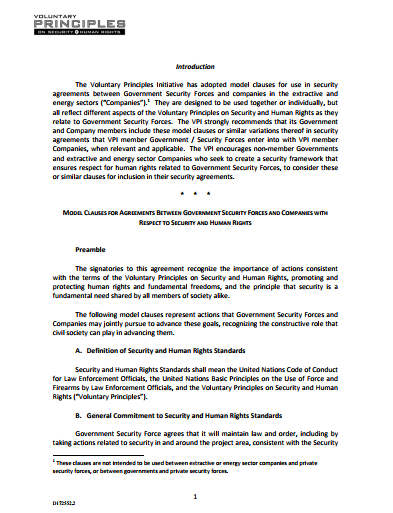Introduction
Established in 2000, the Voluntary Principles on Security and Human Rights are a set of principles designed to guide extractive sector companies in maintaining the safety and security of their operations within an operating framework that encourages respect for human rights. Participants in the Voluntary Principles Initiative — including governments, companies, and NGOs — agree to proactively implement or assist in the implementation of the Voluntary Principles.
The Voluntary Principles Initiative has adopted model clauses for use in security agreements between Government Security Forces and companies in the extractive and energy sectors (1). They are designed to be used together or individually, but all reflect different aspects of the Voluntary Principles on Security and Human Rights as they relate to Government Security Forces. The VPI strongly recommends that its Government and Company members include these model clauses or similar variations thereof in security agreements that VPI member Government/ Security Forces enter into with VPI member Companies, when relevant and applicable. The VPI encourages non‐member Governments and extractive and energy sector Companies who seek to create a security framework that ensures respect for human rights related to Government Security Forces, to consider these or similar clauses for inclusion in their security agreements.
________________
(1) These clauses are not intended to be used between extractive or energy sector companies and private security forces, or between governments and private security forces.

